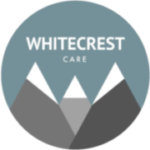What really makes us happiest in life? Some may point to fabulous fame and fortune. Yet hands down, surveys show that friends and family are the real prizes. Even though our need to connect is innate, some of us always go home or stay home alone.
Now let’s imagine a 65-year-old woman who sees her physician frequently for a variety of aches and pains. She might complain of back pain on one visit, headaches another time, and feeling weak on the next. Each time, her physician does a physical exam and runs the appropriate tests, without finding anything to account for her symptoms. Each time, she leaves the office feeling frustrated that “nothing can be done” for what ails her.
However, if we examined more closely, we’d find out that this patient lost her husband five years earlier and has been living alone since. Her children all live in other states. Although she dotes on her grandchildren, she sees them only about once a year. She has a few friends that she only sees occasionally. If asked, she would probably tell you that, yes, she is lonely. Research shows that people who feel lonely have more health problems, feel worse and perhaps die at an earlier age.
In 2015, researchers from Brigham Young University looked at multiple studies on loneliness and also isolation. Their results from several hundred thousand people revealed that social isolation resulted in a 50 per cent increase in premature death.
Loneliness and social isolation are also associated with increased blood pressure, higher cholesterol levels, depression and, if that weren’t bad enough, decreases in cognitive abilities and Alzheimer’s disease.
The good news is that there are several initiatives poised to eradicate completely isolation and loneliness. A helpline supporting lonely and isolated older people received one call every minute in March, making it the busiest month since its launch in November 2013. This also points to the massive increase in isolation and loneliness. The good news again is that people are now more aware and also seeking necessary help.
You can also read: Carers need mandatory LGBT training
Silver Line took an amazing record 48,000 calls in March alone, a 24 per cent increase on the same month in the previous year, with the cold weather and Easter weekend partly to blame.
The number of incoming calls continued to rise in April, with 80 per cent of callers calling for the first time.
Sophie Andrews, Silver Line’s chief executive, said: “We know that for our callers, bank holidays throughout the year seem interminably long and lonely – they often describe them as a month of Sundays’; and when combined with holiday occasions traditionally focused on celebrating with loved ones, it can be even more challenging for them.
“We also frequently heard from those calling between Good Friday and Easter Monday that their family and friends had gone away for the long weekend, leaving them home alone.
“More generally, however, these figures underline what we hear from older people phoning us every day: that loneliness isn’t just for Christmas – it is their reality all year round.”
Loneliness is a big deal that must be dealt with accordingly. At Whitecrest Care we are aware of this looming challenge, and we have positioned ourselves to always be a solution to problems associated with caregiving. With our befriending and companionship services then we would be able to support people who are lonely. Give us a call today for more enquiries.
We move mountains for you.



